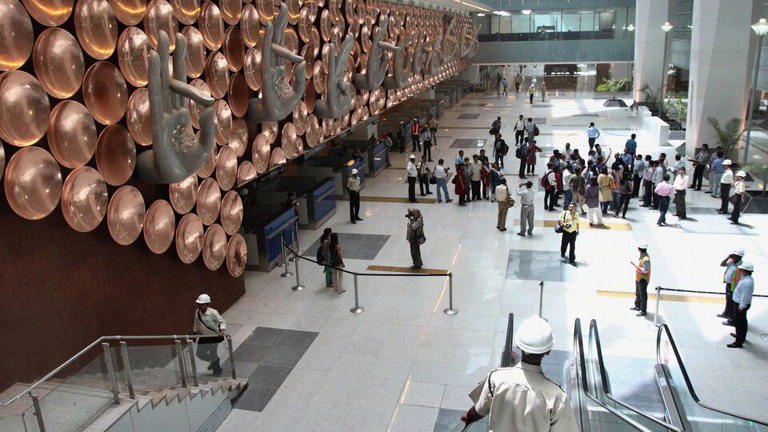Now Reading: The Breaking Point: Delhi Techie Quits India Over ‘Lack of Dignit
-
01
The Breaking Point: Delhi Techie Quits India Over ‘Lack of Dignit
The Breaking Point: Delhi Techie Quits India Over ‘Lack of Dignit

A powerful Reddit post by a 27-year-old Delhi-based software engineer has gone viral, sparking a heated national conversation about the failure of basic infrastructure, rampant bureaucracy, and the diminishing “dignity of life” for India’s educated, tax-paying middle class. The engineer, who reportedly works at a FAANG company and graduated from a Tier-1 college, shared his decision to finally “leave India,” expressing a deep disillusionment with the system he once hoped to serve.
🇮🇳 A Love Broken by the State
The post, titled “Finally decided to leave India,” gained massive traction on the r/delhi subreddit. The techie confessed that he had always been against moving abroad, driven by a desire to contribute to his “motherland.” However, a recent personal experience involving the state machinery—which he did not detail fully—became the final, decisive blow.
He wrote that the encounter made him acutely aware of the “dire state of our bureaucracy and judiciary,” claiming that an honest, tax-paying individual will “always face injustice because someone with a pen and authority can destroy you without any consequences.” This sentiment struck a deep chord with thousands of young professionals who often feel powerless against systemic corruption and lack of accountability.
The Reality of ‘Basic’ Amenities
The crux of the techie’s frustration lies in the absence of fundamental civic amenities in one of Delhi’s so-called “posh colonies.” He painted a vivid picture of the daily struggles of a life in which basic necessities must be outsourced privately:
- Clean Water: “In Delhi, we have been buying water for the last 5 years.”
- Clean Air: “For clean air we need air purifiers.”
- Safety & Policing: “For our security, there is no proper policing.”
- Drainage: “Now monsoon, provided that we don’t even have basic drainage.”
He further detailed the constant stress of the justice system, lamenting the fear that anyone with authority “can file an FIR or case unduly against you just to threaten or extract money.” This feeling of persistent vulnerability, he argued, chips away at the quality of life, leading him to conclude: “I have one life I can’t live in fear anymore.”
Seeking the ‘Dignity of Life’
The engineer’s ultimate reason for moving abroad—reportedly to a country like Luxembourg—was not purely financial, but a quest for “basic dignity of life.” He questioned the value of his elite education and hard work, writing, “I didn’t study so hard to experience this.”
The viral post resonated strongly, tapping into a broader phenomenon often termed “brain drain.” Online commentators expressed a mix of sympathy, solidarity, and resignation. Many agreed with the systemic critique, viewing the move as a pragmatic choice for personal well-being. The conversation mirrored a sobering reality: India is currently the leading source of migrants to OECD countries, with millions moving overseas annually, often driven by the very issues raised in the post.
The engineer’s bittersweet sign-off summed up the painful decision for many like him: “I never thought a day would come when I’d fall out of love of this beautiful country, but I am done.” His personal decision has forcefully brought to the public sphere the uncomfortable question: for a rapidly developing nation, why do its most talented citizens still feel compelled to leave in search of a functional and dignified civic life?










